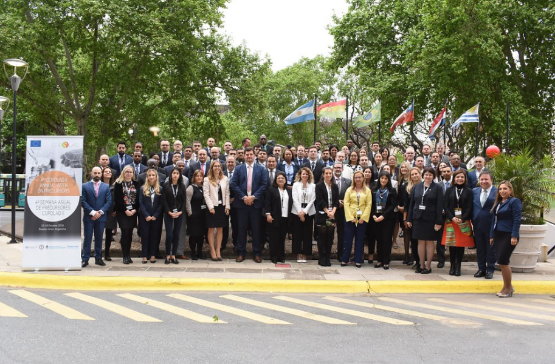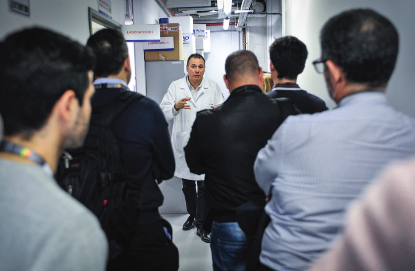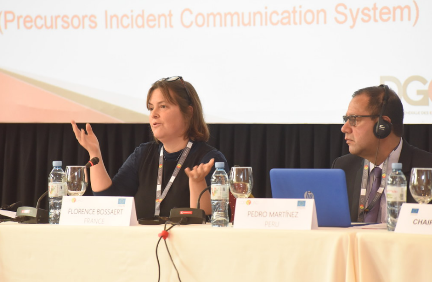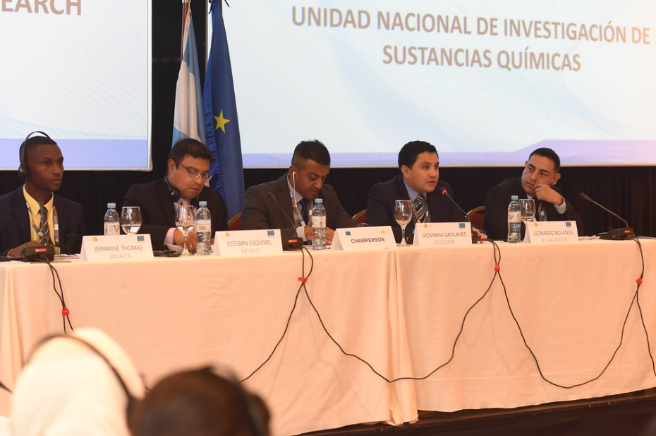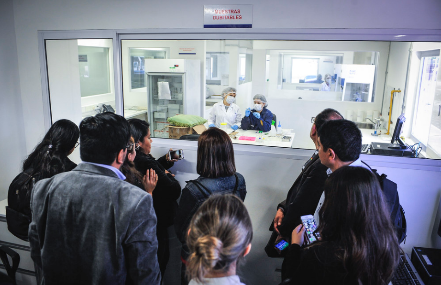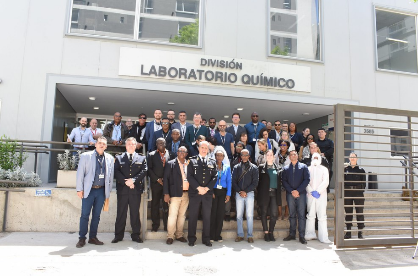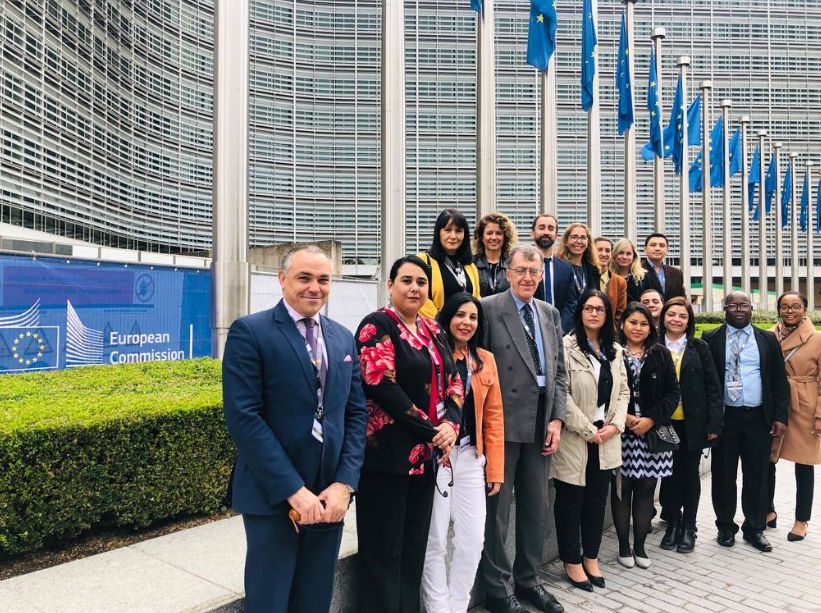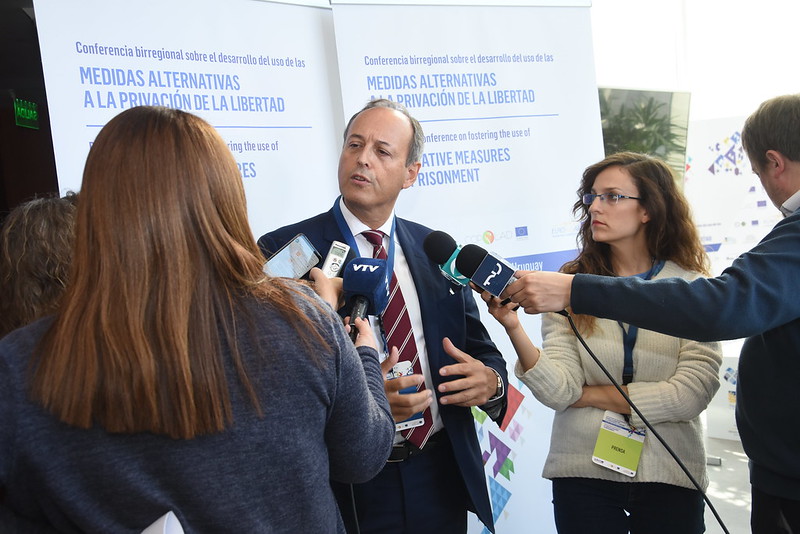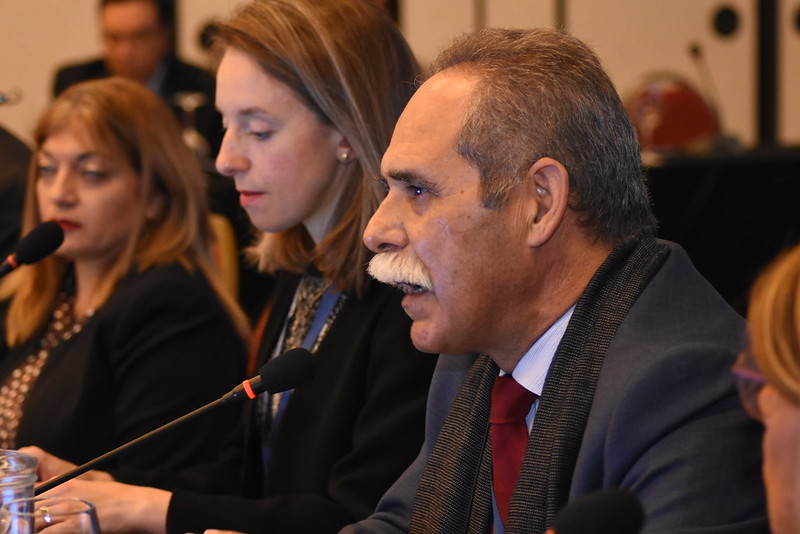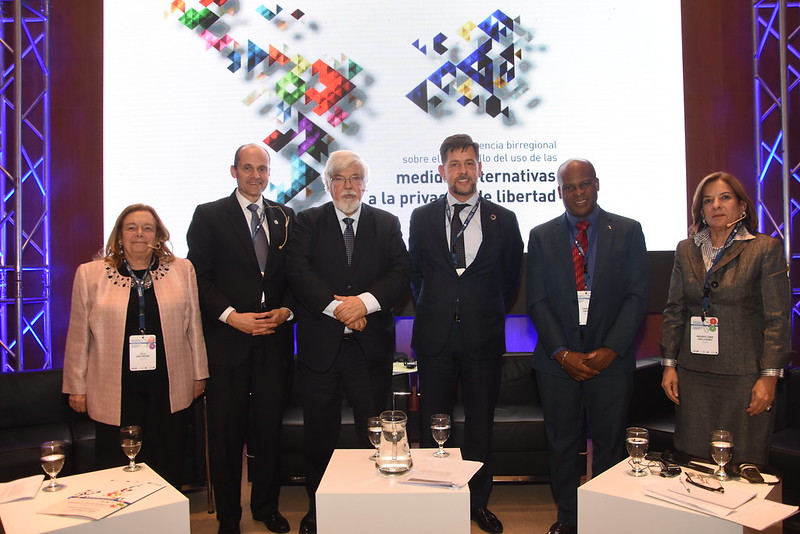Progress in the area of chemicals precursors diversion for the manufacture of illicit drugs
The design and implementation of policies that include strategies for the control and monitoring of chemical precursors, which do not appear in the countries' control lists, has been a topic to which COPOLAD has given special relevance, in order to promote the formulation of effective policies to face the appearance of New Psychoactive Substances (NPS).
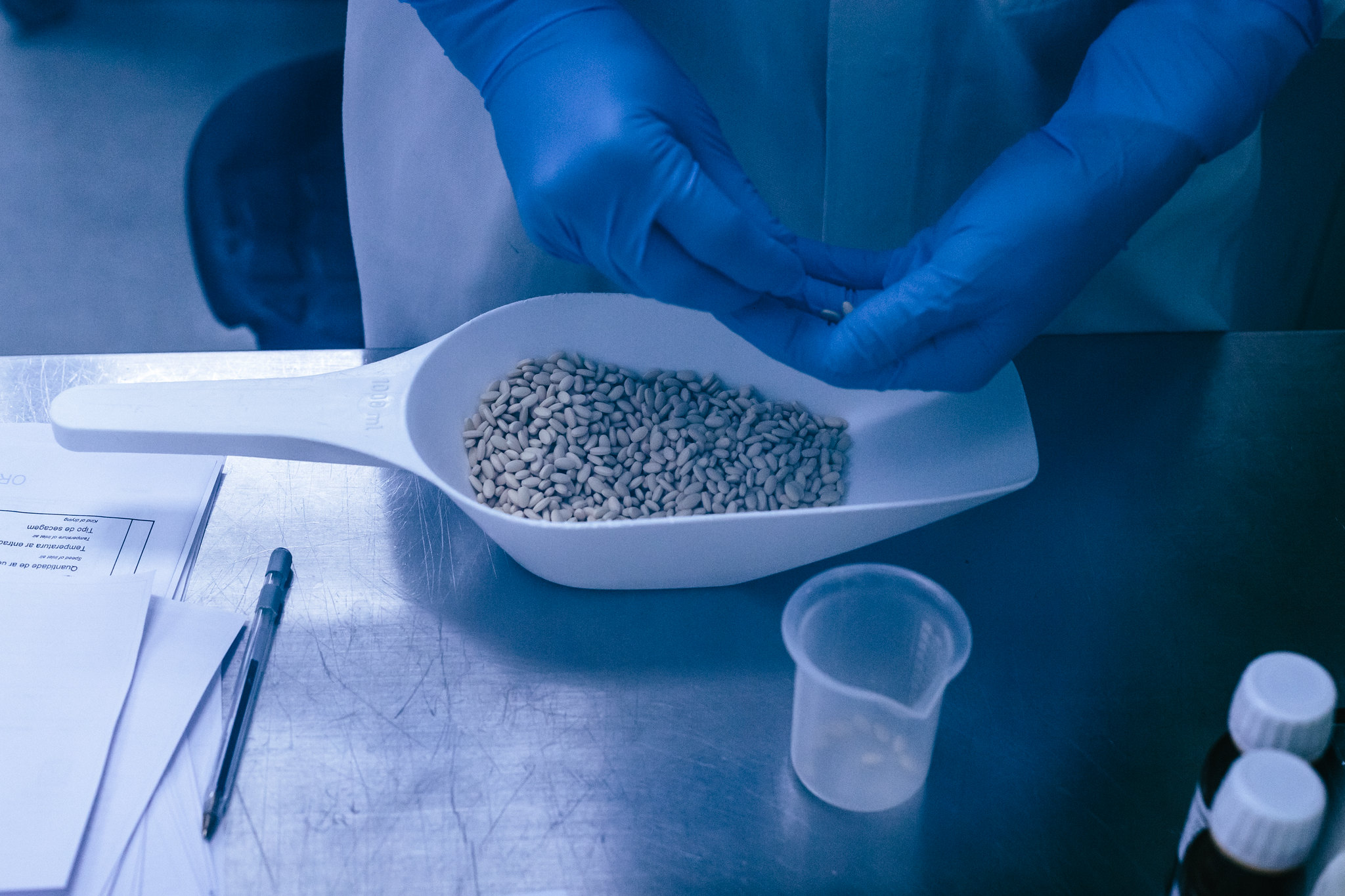
With the COPOLAD's Annual Precursor Weeks and the Working Groups involved in this area, and after four years of intense work, a consolidated model of joint work has been outlined in the countries of Latin America, the Caribbean and the EU. Through COPOLAD, both regions have been able to exchange information and discuss the challenge posed by the proliferation of NSPs; the importance of voluntary agreements with the private sector or the role of forensic laboratories; as well as analysing legislation on chemical precursors, among other issues. The working methodology adopted by COPOLAD in this area, which includes field visits (forensic laboratories and criminal investigation offices), that have been organised by COPOLAD with the aim of promoting knowledge and south-south cooperation, CELAC-EU relations, and a better understanding of the work of the European Union, actions that have been highly valued by the countries of both regions.
In this line of work, the 4th COPOLAD Precursors Week was held in Buenos Aires (Argentina) from 15 to 18 November 2019, under the leadership of the Ministry of Security and the Secretariat of Comprehensive Drugs Policies of the Argentine Nation (SEDRONAR), together with the Intelligence Centre against Terrorism and Organized Crime (CITCO) of the Ministry of the Interior of Spain. Representatives of the Argentine Secretariat of Security, as well as the Delegation of the European Union in Argentina, participated in the opening session and accompanied the organizing organizations. This latest edition closes the cycle that began in Barcelona (2016) and continued in Brasilia (2017) and Lisbon (2018).
With this fourth edition, the work developed around the objective of articulating a bi-regional collaboration between experts from Latin America, the Caribbean and the European Union, belonging -among other instances- to Police Units, Ministries of the Interior and Specialized Prosecutor's Offices in the field of control of chemical precursors for the manufacture of illegal substances has been closed. The meeting was attended by more than 80 experts from 40 countries, in addition to the outstanding presence of the Ibero-American Association of Public Prosecutors (AIAMP), the Inter-American Drug Abuse Control Commission (CICAD-OAS), the European Commission's DG Taxation and Customs Union (TAXUD) and the CRIMJUST Global programme "Strengthening Criminal Investigation and criminal justice cooperation along drug trafficking routes", also financed by the European Commission.
In addition, during 2019, the last meetings of the working groups in the field of precursors were held (Brussels, 25-27 September 2019, where official visits to EU institutions such as the European Commission, the Council of the European Union and the European Parliament were held, and Buenos Aires, 15-18 October 2019), which served to close the activity that has been carried out over the last few years in the working groups by the countries of Latin America and the Caribbean. Among the milestones reached during this four-month period is the approval of the document prepared by the Latin American group on Best Practices and Lessons Learned for the control of the illicit traffic of chemical precursors, that was presented during the aforementioned 4th COPOLAD Annual Chemical Precursors Week and that is currently in the process of being edited for dissemination in the first quarter of 2020.
The member countries of these working groups are Antigua and Barbuda, Argentina, Barbados, Belize, Chile, Colombia, Costa Rica, Dominica, Guatemala, Honduras, Ecuador, Peru, Trinidad and Tobago, Uruguay and Venezuela.
Three European Union cooperation programmes with Latin America and the Caribbean are working together to promote the use of alternative measures to prison
COPOLAD has been working with Latin America and the Caribbean on the need to review the management of penal, prison and reinsertion policies, in order to have alternative measures to the deprivation of liberty and to generate awareness of the advantages that these novel and effective proposals imply in judicial, economic, social and political terms for all countries. A COPOLAD meeting on this subject, held in Costa Rica in 2017, was already an opportunity to analyse the situation in the region, whose average rate of persons deprived of liberty is showing a worrying upward trend.
Considering the needs in this area were still present after two years and the existing interest in the subject, three regional cooperation programmes of the European Union (COPOLAD II, EL PAcCTO and EUROsociAL+) joined forces and working methods to organize a Bi-regional conference on fostering the use of alternative measures to imprisonment, which took place in Montevideo, Uruguay, in September 2019.
More than 150 justice experts, prison sector actors, and institutional representatives from various countries participated in roundtables and discussions aimed at promoting debate and sharing successful experiences in the application of alternative measures to deprivation of liberty aimed at reducing prison overcrowding, lowering recidivism rates, facilitating processes to improve inmates' social reintegration, and more effectively combating the organized crime that thrives in the region's prisons. Challenges that are aligned with the Sustainable Development Goals (SDG) of the 2030 Agenda, and include the gender perspective in policies of alternative measures to deprivation of liberty.
This conference was attended by ministers of justice of the region, such as those of Colombia, Uruguay and Barbados, and representatives of the European Commission's Directorate General for International Cooperation and Development, and specially, the Uruguayan Drugs Board (Junta Nacional de Drogas, JND), a COPOLAD partner which attended this meeting as member of its Consortium, headed by its Executive Secretary. In addition, CICAD, a strategic partner of COPOLAD, also contributed to the conference, sharing its valuable experience in the region on this topic.


